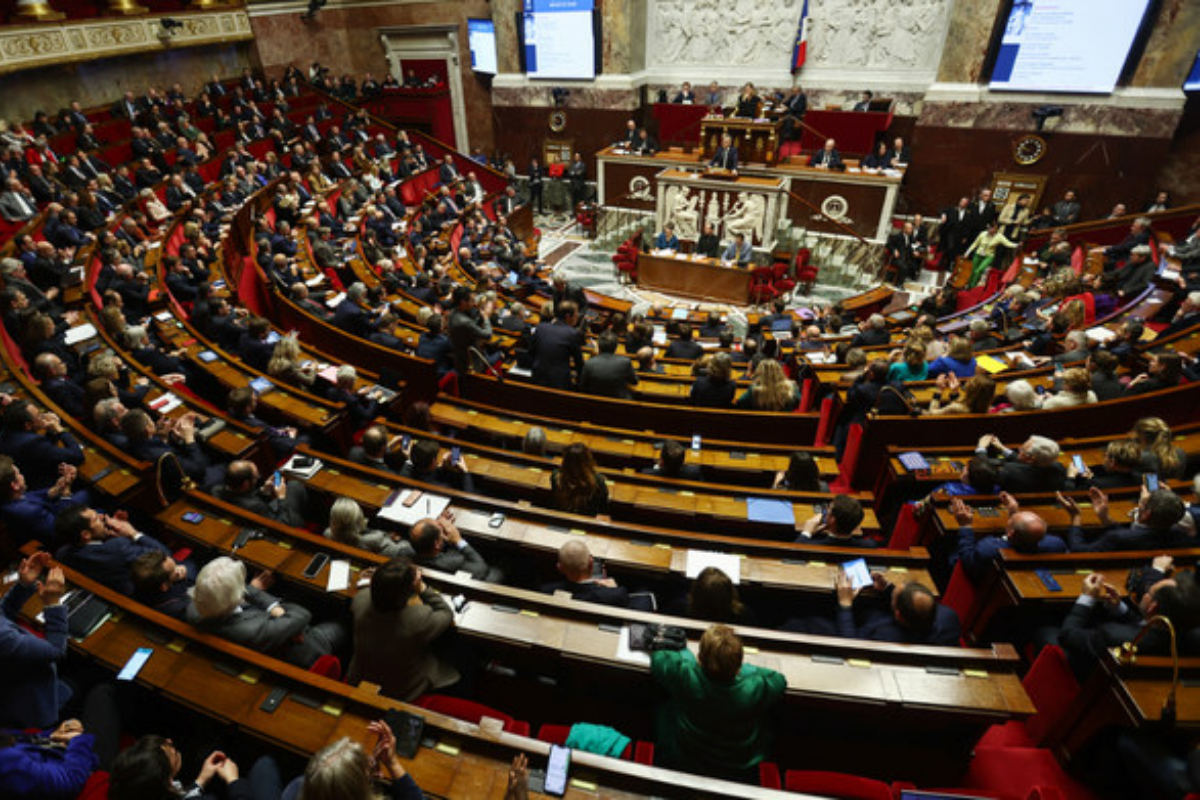- The decision led to division within Macron’s party, leading to the resignation of the Health Minister.
- Left-wing parties accused Macron of compromising with the far right to gain support.
- It also prohibited the detention of minors in immigration centers.
The French parliament has approved a modified bill aimed at making the country’s immigration policy more stringent.
Surprisingly, both President Emmanuel Macron’s centrist Renaissance party and Marine Le Pen’s far-right National Rally (RN) supported the amended legislation.
However, this decision caused division within Macron’s party, leading to the resignation of Health Minister Aurélien Rousseau.
Critics from left-wing parties accused Macron of compromising with the far right to gain support.
The initial draft of the bill faced rejection last week from both the National Rally and left-wing factions. In response, the government revised the bill, making some provisions even tougher.
The new law introduces challenges for migrants seeking to reunite with family members in France and delays their access to welfare benefits. Additionally, it prohibits the detention of minors in immigration centers.
One controversial aspect of the legislation involves differentiating between citizens and migrants, including those legally residing in the country, when determining eligibility for benefits.
The revised and stricter version found favor with right-wing parties, gaining their support during the recent vote. Marine Le Pen applauded the amended bill, considering it an “ideological victory” for the far-right.
“This is our bill,” said Eric Ciotti, the leader of the right-wing Republican party. He called it “firm and courageous”.
But left-wingers said Mr Macron was enabling the far-right. “History will remember those who betrayed their convictions,” Socialist party leader Olivier Faure said.
Leaders in at least two regions governed by left-leaning authorities, Seine-Saint-Denis and Lot, have declared their refusal to enforce certain aspects of the law concerning benefits for non-citizens.
The French parliament’s decision coincided with a broader EU agreement to revamp the asylum system across its 27 member states. This new pact, approved by both EU governments and members of the European Parliament, involves establishing border detention centers and streamlining the process of deporting rejected asylum seekers.
Parliament President Roberta Metsola praised the agreement as a significant milestone. It allows for the relocation of asylum seekers from countries with high arrival rates, primarily in the southern regions, to other EU nations. However, formal approval is still pending from the Parliament and individual member states.
The passage of the new French immigration legislation revealed divisions within the ruling coalition. Twenty-seven MPs voted against it, and 32 abstained, representing nearly a quarter of pro-Macron MPs.
Health Minister Aurélien Rousseau, formerly a member of the Communist party in his youth, resigned in protest against the immigration law. There are reports of other ministers contemplating similar actions.
“Some measures in the bill make me very uncomfortable,” said Yaël Braun-Pivet, the lower house of parliament president and a member of Mr Macron’s party.
The proposed immigration bill would have been approved even without the support of Marine Le Pen’s party if they had chosen to abstain from voting, though not if they had voted against it. The government, emphasizing its significant majority, argued that it wasn’t reliant on the National Rally votes.
Following the vote, the prime minister acknowledged that some aspects of the law might face constitutional challenges. She mentioned plans to seek the opinion of the Constitutional Council, which is a top court responsible for upholding constitutional principles.
Critics, including human rights groups, strongly condemned the new immigration reform, labeling it as the most regressive in decades.
It’s worth noting that President Macron’s party lost its parliamentary majority in the June 2022 elections. Since then, the government has frequently encountered challenges in securing votes in parliament.
[embedpost slug=”french-parliament-stops-when-a-member-yelled-go-back-to-africa/”]




















